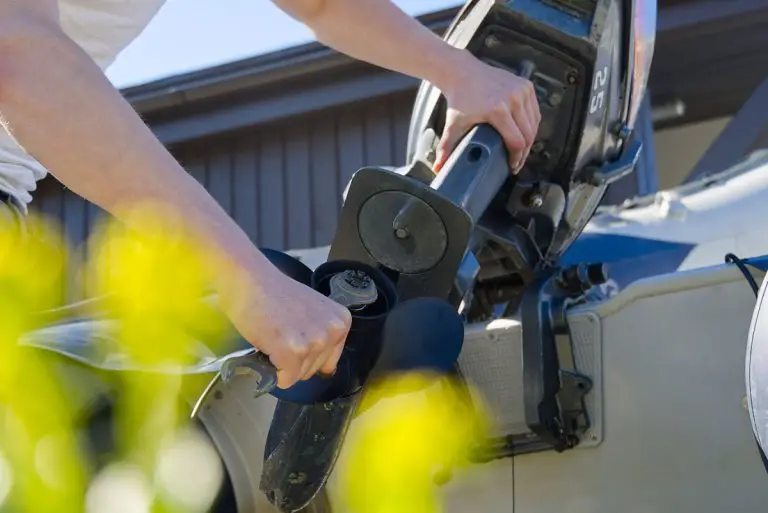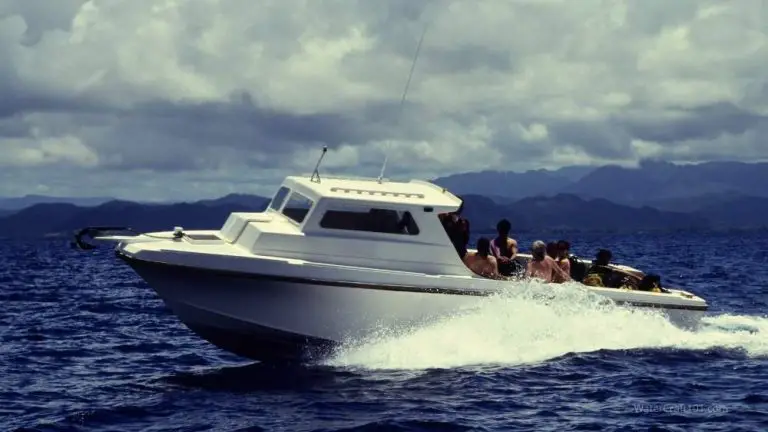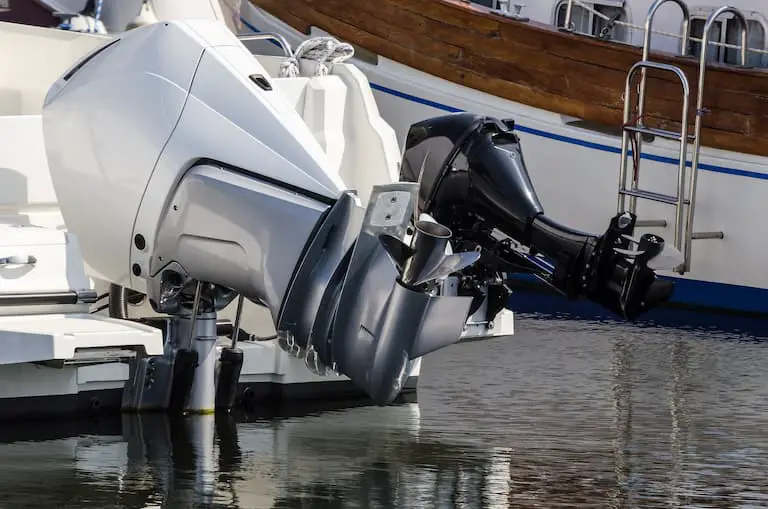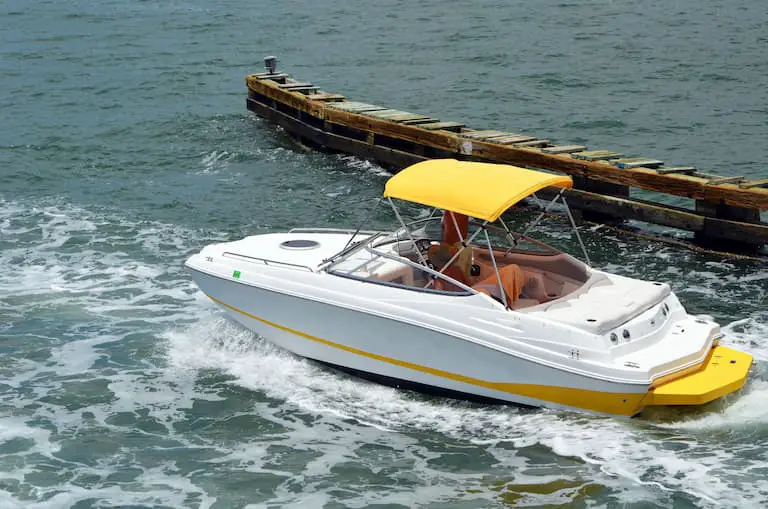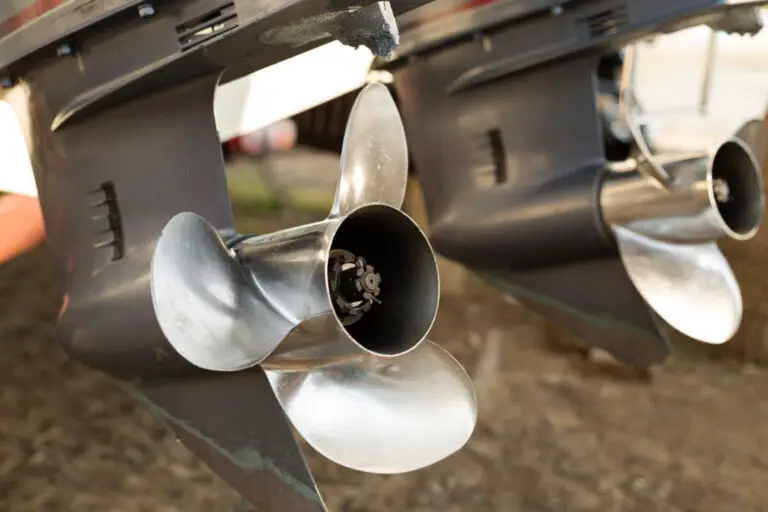5 Signs Of A Bad Impeller In Outboard Boat Motors (Revealed!)
Despite being a tiny object, an impeller is one of the essential parts of a motorboat engine, and it plays a big part in pumping raw water from outside a motorboat to cool the engine. But it seems as though many motorboat owners do not pay much attention to this part or understand its value. Impellers need constant maintenance to continue to be helpful, but first time, boat owners need to know the signs of a bad impeller if they want to stave off an impending disaster.
The five signs of a faulty impeller in outboard motorboats are:
- The boat overheats easily
- Cracked or melted parts of the impeller
- Banging noises from the impeller (means it is misaligned)
- Vanes in the impeller lose flexibility
- No water comes into the pump system

A Boat Engines Impeller Can Disintegrate In A Short Period
The most common mistake for motorboat owners is not to inspect the water pump and impellers from time to time. Impellers must not be left dry. An impeller is a part of a motor boat’s water pumping system that draws the water into the watercraft’s engine in order to keep it cool.
Impellers often dry out when the pump housing is opened and inspected. As such, boat owners should apply grease on the impellers every time they check the pump housing. Applying grease will allow the impeller to draw in water without rubbing against the sides of the pump.
Lubricate The Impellers
Since oil-based grease lasts longer than just about anything else once exposed to water, many sailors use it for their impellers. If you are short on a supply of oil-based products, you can use dishwashing soap as a lubricant in a pinch.
When installing an impeller on a pump system, see that you use an oil-based lubricant. It ensures that the impeller will still turn freely in the shaft after a long time. It will also enable you to remove the impeller easily over time.
Five Common Signs Of A Bad Impeller In Outboard Engines
1. The Boat’s Motor Easily Overheats
The first sign of a faulty impeller is when your boat overheats even in short periods of use. Every engine needs a cooling system that guards it against overheating. If a boat’s cooling system has issues with its water pump, it can lead to defects in the entire boat system.
2. Cracks And Melted Parts (Impeller or Waterpump)
Another sign to be on the lookout for is if your impeller has cracks and melted parts. If there are any physical defects on your impeller that could keep it from spinning freely, it’s a good sign that it needs replacement.
3. Banging Noises From The Impeller
A misaligned impeller would also mean that your impeller does not fit the pump system well. If your impeller causes banging sounds, it may mean that it is not the correct size. Impellers have a design that efficiently lets them pull in water as it rotates. When the vanes of an impeller wear out, it starts to bend and can get distorted in shape.
It is best to use impellers with smaller vanes to lower the chances of acquiring damage. Impellers with vanes close to each other have a higher flow and consistency rate. (source)
4. Vanes In The Impeller Lose Flexibility
Over time, some impeller vanes start to lean towards a specific side. This change in shape can make an impeller lose its flexibility. The rate at which your boat can pump in water will fluctuate if you have a defective impeller. The greater the defect, the more fluctuation you’ll have. (source)
5. No Water Comes Into The Pump System
Finally, a boat impeller may have become faulty if no water comes out of your pump system. Do not let it get to this point, as it is dangerous for your entire boat engine.
What Happens When a Boat Impeller Fails?
When a boat impeller fails, the pump system will not be able to provide cool water throughout the entire boat engine. It will cause the motor system to overheat.
Pump systems are there to ensure that the boat engine remains efficient. The cool water sent by the pump allows the engine to be safe from risks of serious damage to your motor or an accidental fire.
How Often Should You Change The Impeller?
Boat owners should replace impellers once every two years. However, some boat owners would change their impellers only after every three years. But it is most healthy for a motorboat to have its impeller changed every 300 hours. It will decrease the chance of obtaining any damage to your boat pump system.
Another option is to combine a flexible impeller with a centrifugal impeller. As one side suctions water, the other side discharges pumped debris. (source)
How Do I Know If My Outboard Water Pump is Bad?
The impeller is the most important part of a water pump. If an impeller is faulty, no water will be pump will be into the boat’s engine. So if your engine is overheating, the most likely cause is a bad water pump.
How Do You Test An Outboard Impeller?
The best way to test an outboard impeller is to start up the engine and warm it up. If your outboard impeller is working well, water should be coming from the opening in the back of the motor.
Some water pump systems may not produce steady streams of water but still, work well. It would be best to familiarize yourself with how your boat engine works.
Do Not Let Your Impeller Deteriorate In The Pump
Impellers become challenging to remove over time, especially when deterioration starts. You can attempt to remove it using screwdrivers, but this can damage the pump’s tip. The best way to remove an old impeller from your pump system is to use an impeller puller (Amazon).
There are different pullers, so you have to get one compatible with your pump system. Sometimes, your pump’s space may be too small for an impeller puller to fit. You have to pick one that suits the size of your pump system – at least the impeller space.
Frequently, motorboat owners would remove the entire pump from the boat for better visibility. You can also take this time to inspect all other parts of your boat’s water pump system.
Signs Of A Bad Impeller In Outboard – Final Thoughts
Every time you turn on your motorboat, the engine generates heat. When the impeller does not pump water, your boat engine will overheat. Maintenance plays an essential role in all things. An impeller can last for long periods depending on the number of hours you use your motorboat.
If you have time and resources to spare, you can change your boat impeller annually to prevent any issues from arising.
Sources:
- Abo Elyamin, Gamal R.H., Bassily, Magdy A., Khalil, Khalil Y. & Gomaa, Mohammed Sh. “Effect of Impeller Blades Number on The Performance of a Centrifugal Pump” Accessed May 2022.
- Pradhan, Prasanta Kumar., Roy, S.K. & Mohanty, A.R. “Detection of Broken Impeller in Submersible Pump by Estimation of Rotational Frequency from Motor Current Signal” Accessed May 2022.
- Johnson, Terry “A Water Pump Primer” Accessed May 2022.
- Lee, D.I. & Lim, H.C. “Erosion-corrosion Damages of Water-pump Impeller” Accessed May 2022.

